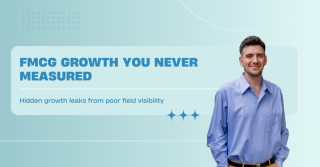Navigating the Moral Compass of Field Sales Software: An Industry-Ethical Deep-Dive

In the hyper-competitive arena of field sales, where business innovation meets the cutting edge of technology, ethical considerations often find themselves in a tug-of-war with the market's relentless demand for progress. In recent years, as sales software solutions have burgeoned into indispensable arsenals for countless businesses, ethical dilemmas have become increasingly prominent. This interplay of ethics and technology is no longer just an afterthought; it's now a crucial pivot point upon which corporate reputation and customer trust sway.
From data privacy concerns to the more intricate aspects of software utilization, each interaction of a company's sales process harbors ethical implications that can either serve as a beacon of integrity or a denouncement of misconduct. Thus, understanding and navigating the labyrinth of potential ethical quandaries that arise in the use of field sales software is not only a moral imperative but also a strategic business necessity.
Defining the Ethical Imperative
In the domain of field sales software, where rapid digitization and advancing technology hold sway, it's easy to get carried away by the allure of advanced features and unprecedented sales performance. Yet, beneath the sheen of innovation, a more profound battleground exists—one where ethical lines can be blurred or boldly crossed. But why are ethical considerations crucial in this sector?
Trust: The Cornerstone of Success
Trust fuels the engine of commerce. Without it, no technology, process, or brand can thrive. In the context of field sales software, trust is a delicate asset that is easily broken and painfully slow to repair. For companies leveraging sales software, ethical behavior is not just about avoiding negative publicity; it's about fostering long-term trust that can catalyze growth and customer loyalty.
Regulatory Compliance in an Evolving Landscape
The regulatory landscape, particularly concerning data privacy, is a minefield that technology-driven businesses must tiptoe through gingerly. Laws like GDPR and CCPA have redefined the rules, demanding greater transparency and control over personal data. Ethical lapses can not only result in financial penalties but also erode customer confidence.
Employee Retention in a Conscientious Generation
Today's professionals, especially younger cohorts, place a significant value on working for an ethical company. Attrition rates can spike if tech-savvy employees perceive that their employer's practices fall short of their morals. Herein lies a workforce that becomes a line of defense for an ethical standard upheld from within.
Understanding Business Ethics in Field Sales Software
To effectively steer clear of ethical pitfalls, a profound understanding of what constitutes 'ethical' is the first step. In its simplest form, ethics is a set of moral principles that govern a person's or group's behavior. However, in the corporate world, business ethics apply these principles to the conduct of organizations.
The Core Tenets of Ethical Practice
When it comes to field sales and its software accomplices, ethical business practice revolves around a few fundamental tenets:
-
Transparency: being open and honest about sales processes, data usage, and software capabilities.
-
Fairness: ensuring that all involved parties are treated equitably, with no undue favoritism or exploitation.
-
Responsibility: acknowledging and taking ownership of the impact of sales software on customers, employees, and the community at large.
Applying these to sales software
Sales software, as a tool for accelerating business operations, must be wielded with the utmost responsibility. This means:
-
Ensuring Data Privacy: Sensitive customer information must be handled with the strictest confidentiality, adopting the highest standards of data security.
-
Guarding Against Bias: Through transparent analytics and algorithms, to prevent any inadvertent or deliberate push toward unfair sales practices or targeting.
-
Empowering Rather Than Replacing: Sales technology should aid and empower sales teams, not replace them or strip away their human empathetic touch.
Navigating Ethical Dilemmas
The mere integration of field sales software into business operations does not guarantee an ethical sail through waters that are only growing murkier. A splash of complexity mingles as data-driven insights and automation take the help of sales strategies.
Data Privacy in the Age of Analytics
The collection and analysis of customer data presents a critical juncture for ethical evaluation. Companies are custodians of a treasure trove of data that demands protection against misuse, theft, and unauthorized access.
The Dichotomy of Monitoring Performance
Sales software affords the unprecedented ability to monitor and analyze every facet of a salesperson's performance. But how much surveillance is too much? What rights to privacy do sales teams retain, and what are the ethical bounds of this surveillance?
Transparency Across Functionality
Sales technology varies widely in capability and complexity. Ensuring that sales teams fully understand the software's features and limitations and that customers are informed about the data collection and usage is a maze to be navigated with meticulous clarity.
Best Practices for the Ethical Use of Sales Software
Ethical considerations should be woven into the very fabric of a company's sales operations. The following practices act as a moral compass for businesses navigating the tumultuous seas of field sales software.
Develop and enforce clear ethical guidelines
Constructing a robust set of guidelines that serve as a reference point for ethical decision-making is essential. These guidelines should be regularly updated to stay ahead of technological advancements and customer expectations.
Consistent Ethical Audits
Regular audits that scrutinize the application and adherence to ethical standards within sales software use will unearth any cracks. These audits should be multifaceted, examining data handling, team practices, and customer experiences.
Invest in ethical training.
Educating employees on the importance of ethical behavior is an investment that pays dividends in the form of a cohesive, conscientious workforce. Training programs should be comprehensive, eloquently relayed, and continually reinforced.
The Future of Ethical Sales Software
With each stride in technological innovation, the ethical quandaries of field sales software will evolve. What may be considered acceptable today could be an ethics violation tomorrow. Anticipating these changes is key to maintaining ethical relevance.
AI and Ethics: Striking the Balance
Artificial intelligence promises to revolutionize sales software with predictive analytics and automated decision-making. Yet, the ethical implications of AI bias and the opacity of machine learning processes demand careful navigation.
The Next Generation and Ethical Sales Practices
As a new generation of professionals and consumers comes of age, their heightened sensitivity to ethical conduct will reshape expectations. Adapting sales software and practices to align with these evolving values is a future necessity.
Global Ethics in a Connected World
The global marketplace means that ethical standards must now transcend national borders. Harmonizing these standards within sales software practices will be an ongoing challenge but a crucial one for international companies.
Conclusion: The compass points to compromise or virtue
In the competitive flurry where businesses are jockeying for position and technology is both the medium and the message, ethical considerations may appear as a stumbling block to be sidestepped. However, they are infact the guideposts that chart a company's direction through the murk of the market. Navigating the domain of field sales software with a vigorous commitment to ethical conduct is not a choice; it is the only pathway to prosperity in an age where trust is the ultimate currency.
In this landscape of savvy consumers, vigilant regulators, and value-driven employees, the compass of ethical sales software practices leads inexorably to the north of longevity, goodwill, and a competitive edge untainted by the stain of misconduct. Businesses that recognize and adopt the ethical imperatives of sales software usage will not merely survive—they will lead the charge into a future where technology and morality are not seen as divergent paths but as twin engines propelling success with integrity.









